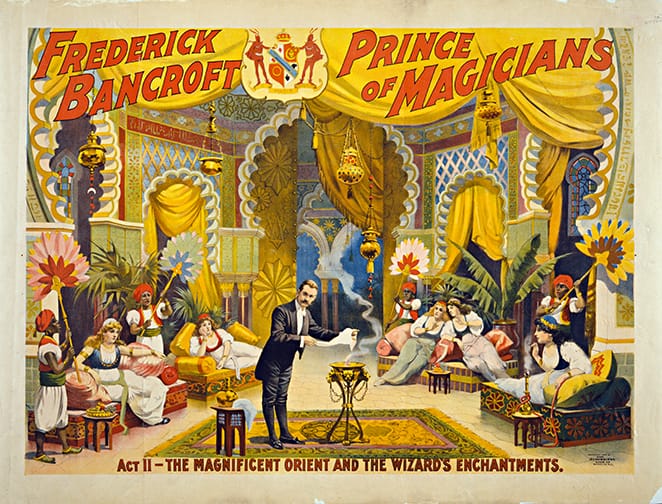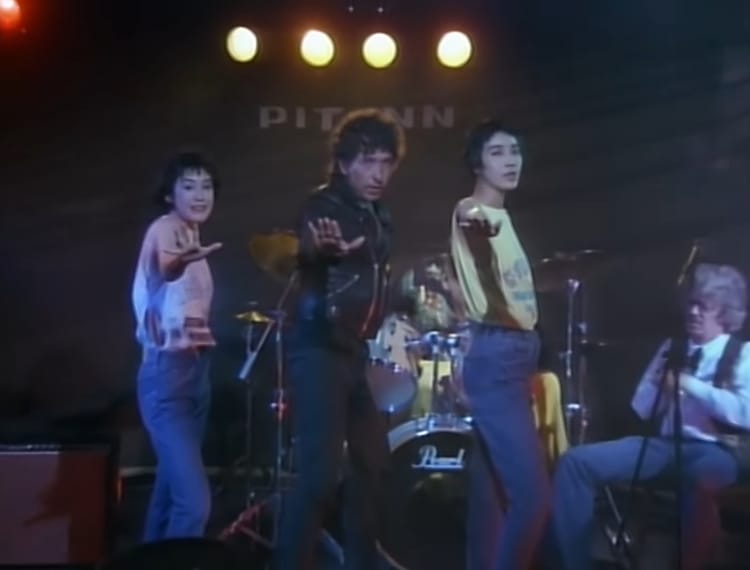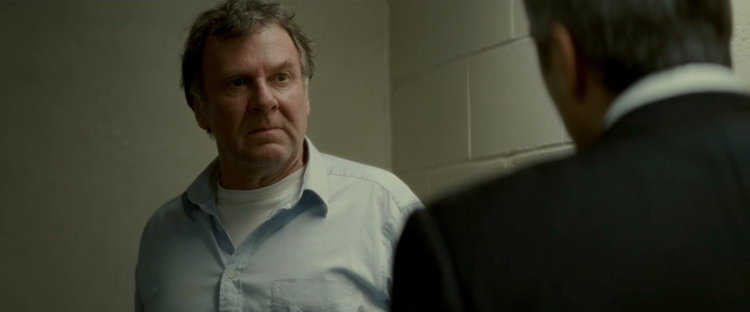Reverse the Curse

24 hours ago, I shared something extraordinarily raw and difficult. Now, by way of a palate cleanser, I’d like to offer an essay I drafted for the current issue of Bright Wall/Dark Room, but which I withdrew following my departure from the editorial staff earlier this month.
I had already received editorial feedback (from one of the smartest people I know, Elisabeth Geier, who is absolutely correct about the piece’s current shortcomings) as well as some notes from my dad, the biggest Red Sox fan I know. But I’m electing to post it in its unrevised form.
That’s because while I didn’t plan to share this today, the time feels right. Given that my last newsletter featured a raw, painful look at my family life—and, in particular, my marriage—I feel I owe it to my best friend to tell you another story about her. It takes a couple thousand words to get there, but it’s my favorite story on Earth.
Don’t worry. This one is shorter. And I took longer to write it.
Reverse the Curse
On Fever Pitch (2005)
“Do you believe in this?” Lindsey (Drew Barrymore) asks her new boyfriend, Boston Red Sox fanatic Ben (Jimmy Fallon), as she peruses a book on Sox history while seated at Fenway Park. “The curse of the Bambino?”
“Hey, seriously, that’s not funny,” Ben says hurriedly. “Enough of that.”
“But Babe Ruth was the Bambino?” Lindsey clarifies.
Ben continues trying to speed towards the end of this conversation, muttering, “That’s right, he played for the Sox, they were great.”
“They won the World Series in 1912, 1915, 1916, 1918,” interjects Ben’s lifelong friend Al (Jack Kehler), a member of his “summer family” of season ticket holders. “They were royalty. The elite.”
“1919,” Ben continues, finally settling into the telling of this most venerable of MLB legends, “their miserable, greedy pig of a boss decides to sell Babe Ruth to the Yankees to finance a Broadway musical…and since 1918, the Red Sox have not won a World Series.”
“And the thing is,” explains Artie (Scott Severance), another summer family member, “the Sox don’t just lose. They raise it to an art form.”
Fever Pitch is set very specifically during the 2004 Red Sox season, but it could have been set in any of the prior 86 years. It was a timeless premise: a romantic comedy set against the thematic backdrop of what it means to love a bunch of perpetual losers. What could have been a safer bet than writing that movie? You could set your watch by the Sox blowing it.
Then that October, something impossible happened, and everything changed: they won.
I first learned of Fever Pitch the night the Red Sox won the 2004 World Series, though I didn’t know I was learning of it. As we watched the newly crowned champions rush the infield at Busch Stadium in St. Louis, there were Jimmy and Drew in the outfield, making out for reasons nobody could quite identify.
I was a college freshman that night, having recently moved from just outside Boston to a small school in Maine where it seemed a good 75% of the student body self-identified as having grown up “just outside Boston.” We watched the game projected on a giant screen outside the library, and when it was all over, there was a mild riot outside the freshman dorms. There was a flaming trash can; the police got involved. It was one of the best nights of my life.
I can’t say for certain who I was in love with in October 2004. I have a couple of candidates in mind, and it would have to have been one or the other; they wouldn’t have overlapped. My crushes were always fiercely monogamous, and if I happened to be in a lull between hopeless loves at the moment, it wouldn’t have lasted long. I was always hurtling towards the next heartbreak.
Fever Pitch is loosely adapted—by screenwriters Lowell Ganz and Babaloo Mandel, old hands at crafting sturdy crowd-pleasers, from Splash to City Slickers to that other baseball classic, A League of Their Own—from Nick Hornby’s 1992 memoir of the same name. The book concerns Hornby’s obsessive devotion to Arsenal Football Club, a passion so intense that “for alarmingly large chunks of an average day, I am a moron.”
Ben is a bit of a moron—not on a cognitive level, certainly, as he’s a seemingly talented and popular math teacher at East Boston High. He’s a moron, though, for the Red Sox, having inherited his uncle’s season tickets behind the dugout. His moronic behavior extends to an apartment decorated, as Lindsey says, like a gift shop, from Red Sox pillowcases to Yankees toilet paper to framed memorabilia crowding every flat surface and inch of wall space—except, that is, for the full living room wall devoted to a perfectly detailed recreation of Fenway’s left field wall, the Green Monster (which, in fairness, I have coveted since first seeing the film).
Ben’s Red Sox fandom has cost him every relationship he’s ever been in. Fenway may be the place where he achieves the sort of bliss most of us can only dream of, but his magnetic pull back to those seats behind the dugout nearly costs him his relationship with Lindsey when he turns down her invitation for a weekend in Paris. What’s he supposed to do, though? The Sox are two games out of first. “They need me,” he explains.
The glib way to describe Fever Pitch might be to say it’s about a love triangle where one party is actually 25 men. It’s not quite as simple as that, though. Ben and Lindsey don’t fall in love despite his fandom; rather, his fandom is a demonstration of his tendency to become hopelessly devoted to what he loves. It’s inextricable from the urge that inspires him to stay with Lindsey after their first date is canceled by her food poisoning, getting her safely into bed and then cleaning her bathroom while she sleeps. Anyone who’s been to an MLB game is well aware that sports fandom is anything but synonymous with chivalry. For Ben, though, Red Sox fandom is a matter of tender, loving care, which he possesses in spades.
As Nick Hornby writes, only two things in his life ever came upon him so suddenly: his love for Arsenal and his love for women, two interests that emerged “inexplicably [and] uncritically, giving no thought to the pain or disruption it would bring with it.”
In 2003, the Red Sox blew it during the American League Championship Series. They wrestled the Yankees over the pennant for seven games, until—as summer family member Viv (Maureen Keiller) bemoans during Fever Pitch’s litany of traumas—manager Grady Little left flagging pitcher Pedro Martinez on the mound at least two and a half innings too long, allowing five runs and giving up a 4-0 lead. They took it to eleven nail-obliterating innings before finally surrendering and sending the Yankees on to win their fifth World Series in six years.
My friends and I watched the ALCS games in one another’s parents’ finished basements, thrilled to witness a series that felt for all the world like history in the making. For some of those games, I was joined by my first girlfriend, with whom I was never in love. I’d been in love with someone else for more than three years, and this girl was my methadone. I liked her, sometimes quite a lot, but really, the relationship represented little more than two anxious wallflowers grasping their last chance at being kissed rather than head off to college embodying the title of another Drew Barrymore romcom.
It didn’t work, for reference—I remained agonizingly in love with the other girl, and weeks before my girlfriend and I came to the logical conclusion and broke it off just before prom, I managed to fall agonizingly in love with someone else, too. I had never experienced that kind of emotional pile-up before, but really, it just testifies to how chaotic things could feel growing up just outside Boston in 2003 and 2004. We watched the Red Sox hurtle towards the brass ring, graze it with their fingertips, and then begin hurtling once more. None of us could yet call ourselves Red Sox fans on anything approaching Ben’s level, but it was quite a time to be emerging into the world of adult sports spectatorship. We carved worry lines into our foreheads, insisting to one another, “This is it. This really is it.” We became, in short, what Al describes in Fever Pitch’s opening voiceover as “one of God’s most pathetic creatures: a Red Sox fan.”
Fever Pitch—at least the book, and its initial adaptation starring Colin Firth and Ruth Gemmell—could be considered part of a loose trilogy of Nick Hornby stories (and their cinematic adaptations) concerning juvenile men. Hornby followed Fever Pitch with High Fidelity in 1995 and About a Boy in 1998, two more books about men seemingly incapable of growing up enough to earn the love of a good woman. For High Fidelity’s Rob, the focus of his fixation is his lovingly curated vinyl collection, into which he pours all of the focus he can’t pour into maintaining his relationship. “Maybe we all live life at too high a pitch,” Rob suggests of his breed of obsessive, “and as a consequence we can never feel merely content: we have to be unhappy, or ecstatically, head-over-heels happy, and those states are difficult to achieve within a stable, solid relationship.”
No matter how different the obsessions may be, whether sports, music, or the various frivolous pursuits on which the idly wealthy Will, protagonist of About a Boy, wiles away his time, it all comes back to the same thing: an effort to hem in a messy and confusing existence by funneling all your energy into a passion that might save you from the heavy burden of introspection.
The Red Sox came painfully close to winning the World Series a couple of times before 2004. There was the century-defining local trauma that was Game 6 of the 1986 series, when first baseman Bill Buckner let an easy ground ball slip between his legs and so let his name slip into infamy (Ben can only grunt that name during Fever Pitch’s trauma litany). But amidst the pain and the sorrow, there is one moment of unbridled bliss we all cherish whether we were alive for it or not: Game 6 of the 1975 World Series.
“Biggest game in Red Sox history,” therapist Sean (Robin Williams) says to his troubled client, Will (Matt Damon), in the 1997 Boston classic Good Will Hunting. “My friends and I slept out on the sidewalk all night to get tickets.”
Will is astounded and delighted. “You got tickets?”
“We’re sitting in a bar waiting for the game to start,” Sean recalls. “In walks this girl.” He goes on to describe the most ecstatic moment of pre-2004 Red Sox history: “It went to 12. Bottom of the 12th, in stepped Carlton Fisk.” Sean mimes Fisk’s famously odd stance and then swings the invisible bat. “BANG! He clocks it, y’know? Hard fly ball down the left field line! 35,000 people on their feet yelling at the ball—Fisk, he’s waving at the ball like a madman.”
Both Sean and Will are on their feet now, laughing with delirious bliss. “Get over!” Sean howls as he and will mimic the leaping and the waving. “Get over! Get over! And then it hits the foul pole—Ho! He goes apeshit and 35,000 fans charge the field.”
“Did you rush the field?” Will asks, grinning like a fool.
“No I didn’t rush the fuckin’ field,” Sean says, throwing Will a scornful look. “I wasn’t there…I was in a bar having a drink with my future wife.”
“Who are these fuckin’ friends of yours that let you get away with that?” Will gasps. “What did you say to them?”
“Sorry guys,” Sean replies. “I gotta see about a girl.”
Fever Pitch is a will-they-or-won’t-they story, but one in which the central couple is paired up almost from the start. The question, then, isn’t whether or not they’ll get together, but whether or not they’ll be able to negotiate their burgeoning and then swiftly deepening relationship. It’s a story of how difficult it can be not just to find love, but to find its parameters, and figure out how to meet in the middle. It may be a movie about a juvenile man, but it concerns the most adult of questions: how can we make ourselves available enough to make ourselves worthy of love? It’s an expansive film, playing fast and loose with romcom convention as it traces the rises and falls of this relationship, making room for a pregnancy scare, multiple almost-break-ups, and then a third-act one that, rather than coming across as an artificial obstacle before a preordained reunion, actually seems like it might be for the best.
Once it appears he’s lost Lindsey for good, Ben decides to sell his season tickets (for $125,000—the same price, he’s reminded with a twist of the knife at the hands of the summer family, that the Sox sold Babe Ruth for). He’s not selling them to get her back, but rather because he finally understands the need for some sort of balance and perspective in life, even as he wildly overcorrects by breaking with tradition and selling, rather than passing down, his seats. In any case, whether or not Lindsey is in his life, he’s a healthier person for having known her.
(Then, of course, Lindsey rushes to Fenway, launches herself onto the field, and races across the grass, evading security and police, to prevent Ben from signing the papers, all to the thunderously triumphant strains of Tears for Fears’ “Who Killed Tangerine?” because this is a romcom and we do expect at least something resembling a heart-in-the-throat airport chase, don’t we?)
The summer family alleges that Ben would never sell his tickets if they were winning. But Ben roars back, “We’re never winning! That’s the point!” So it was.
Fever Pitch is a funny movie—though the moments that seem like either punch-up or improv from one Mr. James T. Fallon do clang as much now as they did then. Its best gag, though, isn’t, strictly speaking, part of the movie itself. Instead, it’s the metatextual comic value of seeing the seams holding together the hurried opening and closing narration appended when the expected ending to Fever Pitch was yanked out from under directors Peter and Bobby Farrelly. And so the film opens with something it was never meant to: “We finally did it,” Al says with what sounds almost like the creators’ own weariness. “That part you know. That part everybody knows.” And then we commence the story they thought they were telling: the one about, as Ben says, how good for the soul it can be to invest in something uncontrollable.
Al returns in the film’s rushed coda, a slapped-together montage transparently jammed onto an already finished story—“Well, you pretty much know the rest,” he says, and races through the story of the 2004 postseason. “What am I saying?” he muses, his creators grasping at straws, “That it was all karma because Lindsey came back to Ben?” Al lets that thought drift away, too. But on the night the Sox won it all, he informs us, “there was a blue moon and a total eclipse. And those are the facts.”
And with that, we finish a movie that has abruptly become about the most unlikely of things: the miracles that can happen if you don’t give up hope.
I fell in love with Cait at first sight.
I was a college senior, and while I had gone through the past three years obsessing over my little loves, I could tell with a glance that this was different. I walked into the campus bookstore one day to buy a printer cartridge, she was working the register, and—well, as Sean tells Will with absolute confidence when his young client disbelieves the notion of love at first sight, “Yeah, but you shoulda seen her.”
On some level, our love came together so easily that in the years since, she’s chosen most often to chalk the entire thing up to fate. I’m not sure I like that reasoning, though. Instead, I like to think about this:
I spent weeks of the fall of 2007 returning again and again to the bookstore, buying office supplies while I tried repeatedly to work up the nerve to introduce myself. Finally, I passed the tipping point where a crush might devolve into something a little bit sad, and so I gave myself a deadline: talk to the cute bookstore girl during her shift this Thursday, or else just cut your losses and move on.
That Thursday, I stopped by the bookstore. I chose my office supplies, I waited in line, and once again, I failed to introduce myself. With that, I gave up.
I walked back out to the library quad, where three years ago I’d watched a curse get reversed. And then I turned around. Fuck this, I said to myself. It’s not over.
That day, I introduced myself. The next night, we ran into one another at a party and talked for two hours. We tend to say we haven’t stopped since. Our first date was the next week. And the rest, as they say, is history.
“I used to believe,” Nick Hornby writes in Fever Pitch, “that growing and growing up are analogous, that both are inevitable and uncontrollable processes. Now it seems to me that growing up is governed by the will, that one can choose to become an adult, but only at given moments…and one can ignore them or seize them.”
Sometime that past year, I had bemoaned my lack of a girlfriend, only for a friend to finally snap at me: How hard are you really trying? And so that summer, I went out and bought a new wardrobe—grownup clothes. I was 21 years old, and I was seizing my opportunity. Maybe it’s too simplistic to say that buying new clothes made me someone worth loving, but on the other hand, it represented nothing less than a newfound resolve to take myself and my place in the world seriously. Evidently, there’s something at least decently lovable about that.
Cait and I made plans to meet up again a few nights after our first date. The Red Sox were in the World Series again, and it looked like they were probably going all the way once more. Now, though, I lived happily in a world where being a Red Sox fan didn’t mean being doomed to a life of pain and sorrow. Now, being a Red Sox fan just meant being someone who experienced the normal ups and downs of human existence.
My friends were planning to watch the game in our suite over in the senior dorms that night, but I blew them off.
“Sorry guys,” I had to say. “I gotta see about a girl.”




